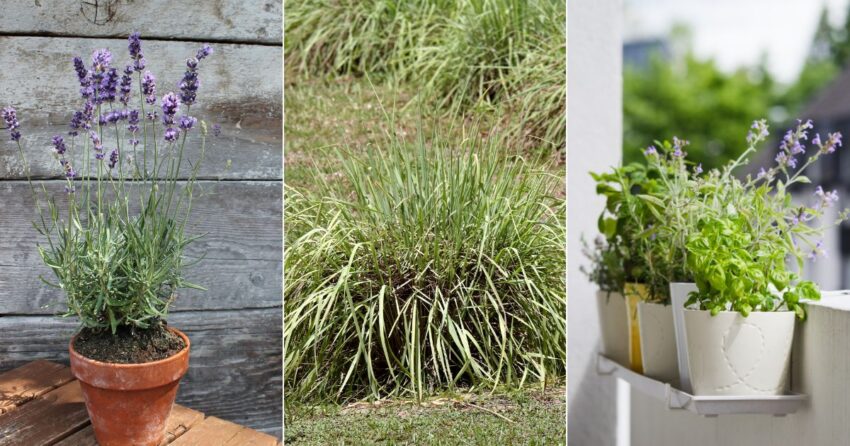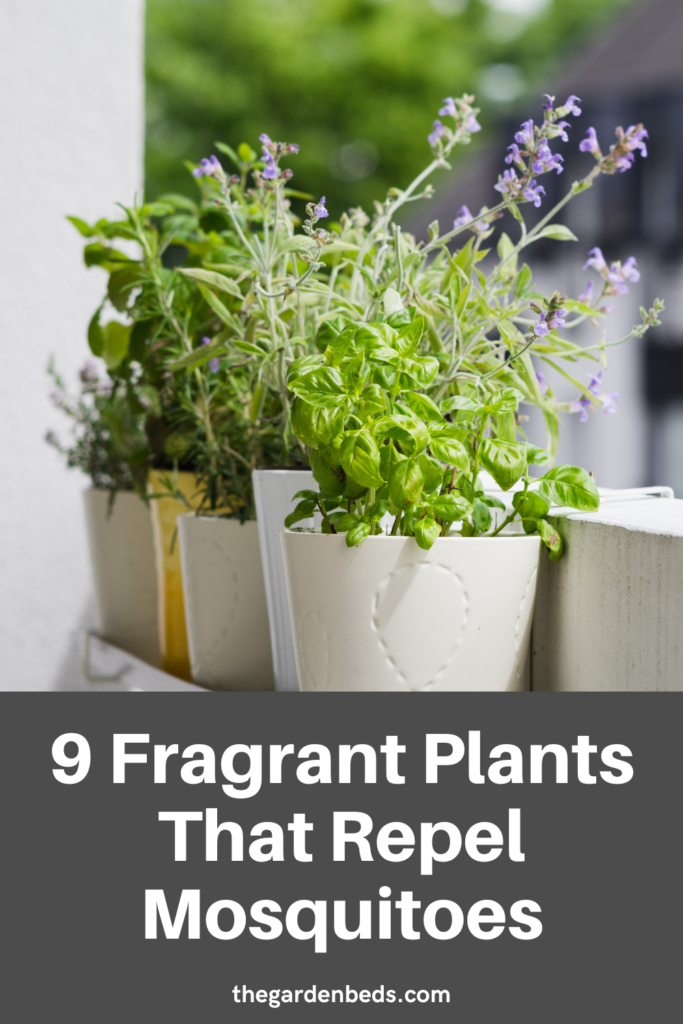Mosquitoes are not only annoying but also potential carriers of various diseases. While commercial mosquito repellents can be effective, many people are searching for natural alternatives that are safe for their families and the environment. One such solution lies in fragrant plants that repel mosquitoes. In this article, we will explore nine delightful plants known for their fragrances and their ability to ward off these pesky insects. Discover how you can create a mosquito-free environment while enjoying the beauty and aroma of these natural repellents.
-
Lavender (Lavandula angustifolia)
Lavender, with its soothing scent and stunning purple flowers, is a favorite among gardeners. This versatile plant not only adds beauty to your garden but also acts as a natural mosquito repellent. Mosquitoes are repelled by the strong fragrance of lavender, making it an excellent addition to outdoor sitting areas. Additionally, you can dry the flowers and use them to make homemade mosquito repellent sachets.
-
Lemon Balm (Melissa officinalis)
Lemon balm, a member of the mint family, is known for its refreshing citrus scent. This plant contains high levels of citronellal, a compound that mosquitoes dislike. It is easy to grow and can thrive in both sunny and partially shaded areas. Crush the leaves to release the scent, and place them in pots or rub them directly onto your skin for added protection against mosquitoes.
-
Citronella Grass (Cymbopogon nardus)
Citronella grass is widely recognized for its mosquito-repellent properties. It contains citronellal, the same compound found in lemon balm, and is often used in commercial mosquito repellents. Growing citronella grass in your garden can help deter mosquitoes from your outdoor living spaces. Consider planting it in pots or near seating areas to maximize its effectiveness.
-
Basil (Ocimum basilicum)
Basil is a popular culinary herb known for its aromatic leaves and versatile uses in cooking. However, mosquitoes find the fragrance of basil unappealing. Planting basil around your outdoor spaces can keep these insects at bay while providing you with fresh herbs for your kitchen. Crush the leaves to release the scent and rub them on your skin for additional protection.
-
Rosemary (Rosmarinus officinalis)
Rosemary, an evergreen shrub with needle-like leaves, is not only a staple in many culinary dishes but also a natural mosquito repellent. Its woody aroma is pleasant to humans but unpleasant to mosquitoes. Plant rosemary in your garden or place potted plants near windows and doors to deter mosquitoes from entering your home.
-
Catnip (Nepeta cataria)
Catnip is well-known for its effect on cats, but it also possesses mosquito-repellent properties. The active compound in catnip, nepetalactone, has been found to be even more effective at repelling mosquitoes than DEET, a common synthetic insect repellent. Consider growing catnip in your garden, but be prepared for feline visitors who may be attracted to its enticing aroma.
-
Peppermint (Mentha piperita)
Peppermint is a refreshing herb that is widely recognized for its cooling and invigorating properties. Its strong scent acts as a natural mosquito repellent. You can plant peppermint in your garden or create a homemade mosquito repellent spray by infusing peppermint leaves in water and using it as a deterrent for mosquitoes.
-
Marigold (Tagetes spp.)
Marigolds are not only vibrant and colorful but also effective at repelling mosquitoes. Their distinct scent repels mosquitoes, making them a valuable addition to your garden. The strong aroma of marigolds masks the scents that attract mosquitoes, effectively keeping them at bay. Plant marigolds in pots or in flower beds near your outdoor seating areas or entry points to your home for optimal mosquito control.
-
Geranium (Pelargonium spp.)
Geraniums, with their vibrant flowers and pleasant scent, are a beautiful addition to any garden. These flowering plants contain natural compounds, such as geraniol and citronellol, which act as mosquito repellents. Place potted geraniums on your patio, balcony, or near windows to create a barrier against mosquitoes and add a touch of elegance to your outdoor space.
Tips for Maximizing Mosquito Repellent Effects:
- Plant a variety of these mosquito-repellent plants in different areas of your garden to create a comprehensive defense against mosquitoes.
- Crush the leaves or flowers of these plants to release their fragrance and enhance their mosquito-repellent properties.
- Consider using essential oils extracted from these plants to create homemade mosquito repellents, such as sprays, candles, or lotions.
- Place potted plants near doors, windows, and outdoor seating areas to create a natural mosquito barrier.
- Keep your garden well-maintained and eliminate any standing water sources, as they serve as breeding grounds for mosquitoes.
Conclusion
By incorporating these fragrant plants into your garden, you can enjoy the beauty and aroma they offer while effectively repelling mosquitoes. These natural alternatives provide a safe and environmentally friendly solution to keep mosquitoes at bay, reducing the need for chemical-based repellents. Create a mosquito-free environment by planting lavender, lemon balm, citronella grass, basil, rosemary, catnip, peppermint, marigold, and geranium. Embrace the wonders of nature and bid farewell to those annoying mosquito bites.


